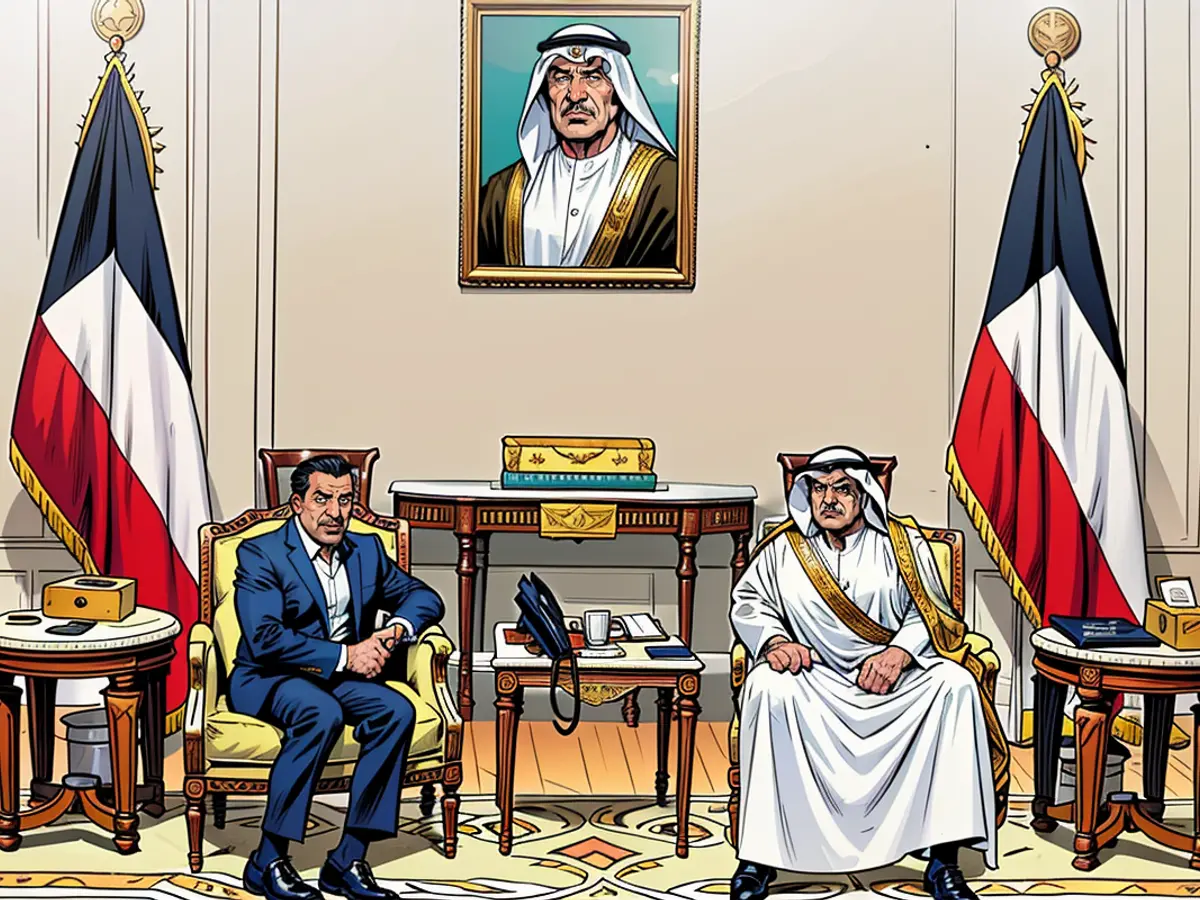Washingtons Arab allies interact with Iran, as Americas endeavors to halt Middle Eastern conflict weaken
Over the past few months, Middle Eastern nations have been utilizing their recently restored relations with Iran's Islamic Republic to avert a broader regional conflict, as the US struggles to manage an impending regional escalation that it can't contain.
US Secretary of State Antony Blinken visited Israel on Tuesday for his 11th trip to the region in a year, aiming to leverage the recent death of Hamas leader Yahya Sinwar and architect of the October 7 incident to negotiate a truce in Gaza. However, US officials are lowering their expectations, as their calls for calm tend to be ignored, and Israel continues to pursue conflicts in both Gaza and Lebanon.
Blinken's trip coincides with Israel's response to Iran's October 1 missile attacks, which were a retaliation to Israel's assassination of Hezbollah leader Hassan Nasrallah and suspected killing of Hamas chief Ismail Haniyeh in Tehran in July.
Suspicious of Shiite Iran's role in the predominantly US-allied Sunni region, Arab nations have been collaborating with Israel in expressing concerns about Iran's support for non-state Islamist groups.
Tehran has been attempting to gauge the stance of Arab nations regarding its confrontation with Israel, deploying top officials and diplomats for an extensive diplomatic campaign among its neighbors, many of whom maintain US military presence and bases. Once-adversarial nations like Saudi Arabia and Egypt are now opening a dialogue with Iran again.
Diplomatic surge
In an unusual encounter this month, Saudi Arabia's Crown Prince Mohammed bin Salman, who previously labeled Iran's Supreme Leader Ayatollah Ali Khamenei the "new Hitler of the Middle East," met with Iranian Foreign Minister Abbas Araghchi in Riyadh. This marked the third meeting between Iranian and Saudi officials within a single month. The inaugural meeting between Iran's top diplomat and Jordan's King Abdullah II in Amman was followed by a rare trip to Egypt to meet President Abdel Fattah Al Sisi in Cairo, as well as meetings with Qatar's prime minister in Doha, Omani Foreign Minister in Muscat, and Bahrain's king in Manama.
It appears that these efforts have been successful to some extent.
According to Araghchi, after meeting Kuwait's Crown Prince Sabah Al-Sabah in Kuwait City, "All our friends have given us assurances that their land and airspace will not be used to attack Iran... We expect this from all countries in the region."
Despite perceiving an opportunity to weaken Iran's regional influence, Arab nations are now signaling neutrality. A regional source confirmed last week that the UAE's airspace will not be used for any attacks on the Islamic Republic.
“The Gulf (Arab) monarchies’ primary concern is not to directly engage in a regional conflict. They fear that they would be targeted and would end up being directly hit in the crossfire,” said Cinzia Bianco, a visiting fellow at the European Council on Foreign Relations. “They believe the best way to avoid such a situation is to serve as important intermediaries for both sides, especially Iran, which is most likely to attempt attacking them.”
Israel's actions in Lebanon and Gaza have effectively debilitated Hezbollah and Hamas, which certain Arab nations and their media outlets had previously labeled as “terrorists.” Although some Gulf Arab states may secretly embrace this development, experts maintain their anxiety about the likelihood of escalating violence in the region, should Israel's advancements not be contained.
“In the present moment, they are not displeased to see Hezbollah weakened and dismantled, but given Israeli's recklessness and unclear strategic goals in the war, there are concerns about how their immediate environment might look afterwards,” stated Hasan Alhasan, senior fellow for Middle East policy at the International Institute for Strategic Studies in Bahrain, speaking to CNN.
The Biden administration's efforts to negotiate a ceasefire settlement in Gaza and curtail the violence in Lebanon have faltered. Also, the US has struggled to persuade Israeli Prime Minister Benjamin Netanyahu to de-escalate.
A ‘critical point’
Gulf Arab states like Saudi Arabia and the United Arab Emirates, two of the world's major oil producers, have transitioned from aggressive foreign policies to serve their economic interests over the past few years. This shift has led them to reconcile with their former adversaries. However, they worry that an unfettered regional war could disrupt their economic aspirations.
“At this critical juncture, the UAE believes a robust and effective American role is imperative,” Anwar Gargash, diplomatic adviser to the UAE president, said to CNN earlier this month. “We need a ceasefire in Lebanon and Gaza as soon as possible.”
In the past, Arab nations that have faced attacks from Iran-allied groups have developed skepticism towards the US' readiness to safeguard them if Iran assaults. In 2019, Saudi Arabia's oil facilities were struck in an attack that Washington attributed to Tehran. The Iran-backed Houthi group in Yemen struck Abu Dhabi in 2022. The US did not intervene.
The UAE was dissatisfied with President Joe Biden's de-designation of the Houthis as a terrorist organization soon after he took office, and the US's subsequent failure to re-designate them following the Abu Dhabi attacks. The US only reinstated the terror designation this year after the group began attacking shipping in the Red Sea to punish Israel following October 7.
“The sentiment in the Gulf has undeniably shifted,” Bianco said. She added, “The Gulf monarchies have lost faith in their primary security guarantor, the United States.”
The change in attitude is due to Gulf nations perceiving a prolonged strategy by the USA to retreat from the Middle East, as it shifts its attention towards China. Nevertheless, these regional states remain heavily dependent on their military ties with the USA. Saudi Arabia is aiming for a defined security pact with Washington, while the UAE, hosting approximately 5,000 US military personnel, is likely to become a significant defense ally for the USA.
In the week preceding Hamas' October 7 assault from the previous year, US National Security Advisor Jake Sullivan expressed during a talk at the Atlantic Festival in Washington D.C., that the Middle East has been "calmer" for the past two decades compared to any period.
He explained, "The time I get to allocate to Middle Eastern crises and conflicts now, compared to any of my predecessors from the 9/11 era, has markedly decreased." He further emphasized that the USA's focus was on regional cooperation and normalization with Israel, which could lead to a more solid and enduring base as we progress.
After recognizing the potential threats in the Middle East, the US Secretary of State, Antony Blinken, expressed concern about the world's stability, urging for a peaceful resolution in the region. With tensions between Iran and its Middle Eastern neighbors, Blinken emphasized the importance of international cooperation to prevent a wider conflict that could impact global security.








